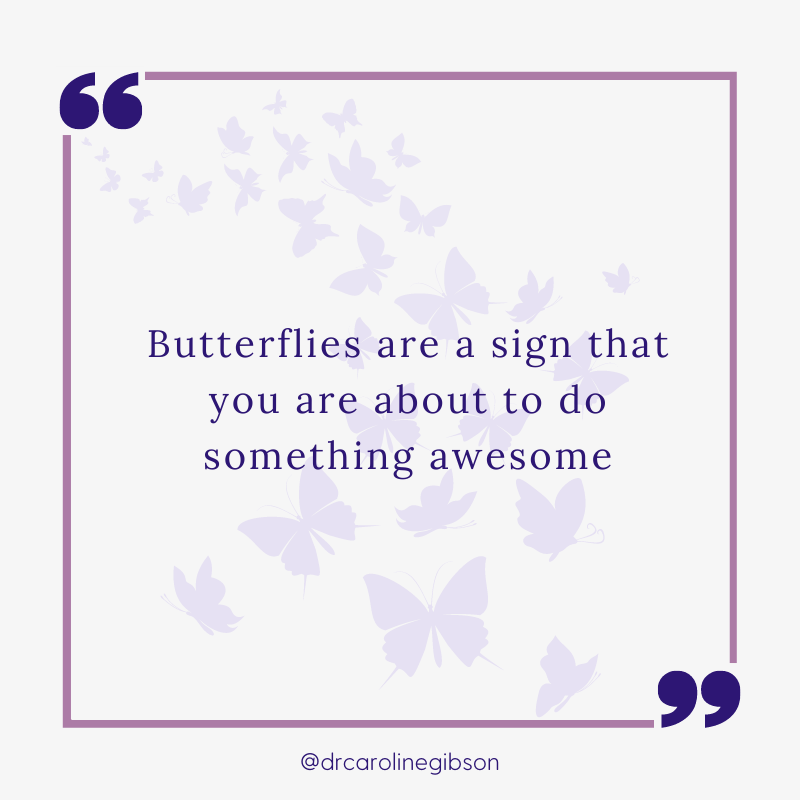
Butterflies are a sign you are about to do something awesome
“Why do we get butterflies mummy? I feel sick.” This was from my 10year old daughter, just before I dropped her off at school earlier this week, on the day of her music exam. I know how she felt, having struggled with anxiety for years, it still shows up every so often, especially if there’s something “big” happening.
Butterflies are your body’s way of saying “I’m anxious”
Over time, I’ve learned to accept and control my anxiety, but it has taken a lot of time, patience, some therapy and medication along the way. And now they are just butterflies, they are no longer the herd of raging stampeding elephants that used to crush me and leave me in a quivering or sobbing heap.
What happens in the body when he have butterflies?
So why do we get butterflies? It is our “fight or flight” response, our brain doing exactly what it has evolved to do over hundreds of thousands of years. When the brain senses a threat, the primitive part of the brain kicks into action and activates the sympathetic nervous system and a hormonal cascade which put the body into action to react to the perceived threat. And our body responds, our heart speeds up, breathing speeds up, blood pressure goes up -we might feels these as a racing heart, or palpitations, or breathlessness. But all of these are the brain acting to get blood pumping round the body so we are ready for action. The same nerve and hormone signals have effects on the digestive system, our gut responds to these signals too, and this is what gives us those butterflies.
The problem is that the ‘threats’ that appear in modern life are not the same as the threats that existed when this system evolved. At that time, the best response was usually running away or fighting back. It is perhaps less helpful with modern life, when the threats come from exams or needing to give presentations… being a jittery sweaty mess doesn’t help. And there is the vicious cycle effect, that once we feel jittery we feel bad about not being calm and composed and then we stress more… sometimes this gets out-of-control, which is where panic can come from.
How can we reduce the butterflies?
Luckily there is an inbuilt feedback mechanism in this system, so if we send calming signals back up to the brain, we can soften and eventually dispel that fight-or-flight response. Actively doing the opposite of what the sympathetic nervous system is trying to do helps reduce those stress signals. One of the easiest ones to control is breathing. By deliberately breathing slower and more deeply, it calms the system. Other tactics include muscle relaxation techniques. There is no exact right answer to what the best technique is because everyone responds to things individually, and which strategy is most effective also varies between people.
But the thing to remember is that those butterflies are your brain and body doing what they think they are supposed to be doing, it is totally normal to have some butterflies. Personally I find it helpful to remember that butterflies are beautiful things, and visualise them fluttering around because eventually they always settle on a flower.
Seek professional help if anxiety is difficult to manage
If anxiety gets difficult to manage do seek help from a healthcare professional. There’s lots of helpful resources at https://www.anxietyuk.org.uk and at NHS.uk .
Lifestyle changes can help with managing anxiety too, contact me here if you would like to explore this with me.



